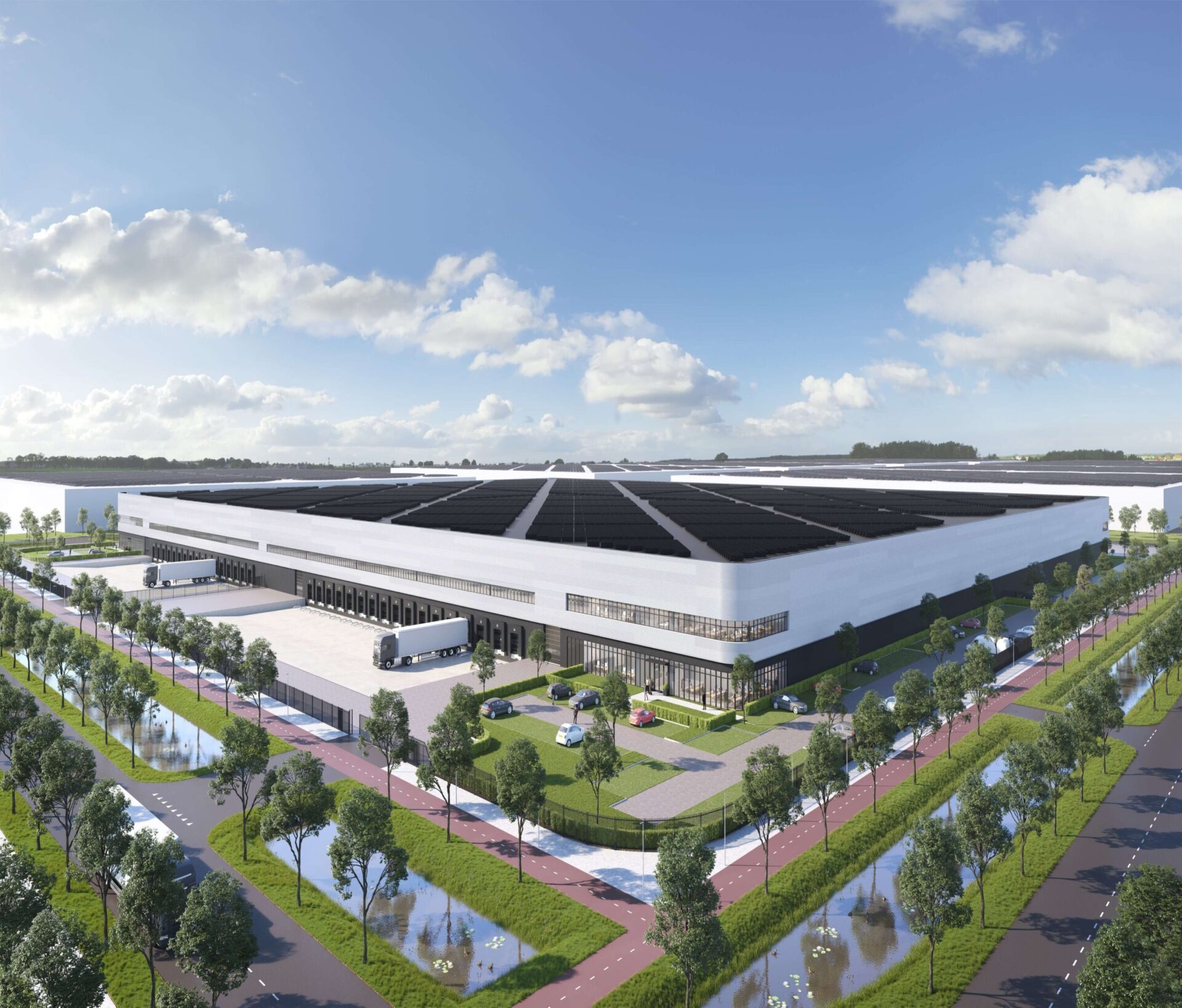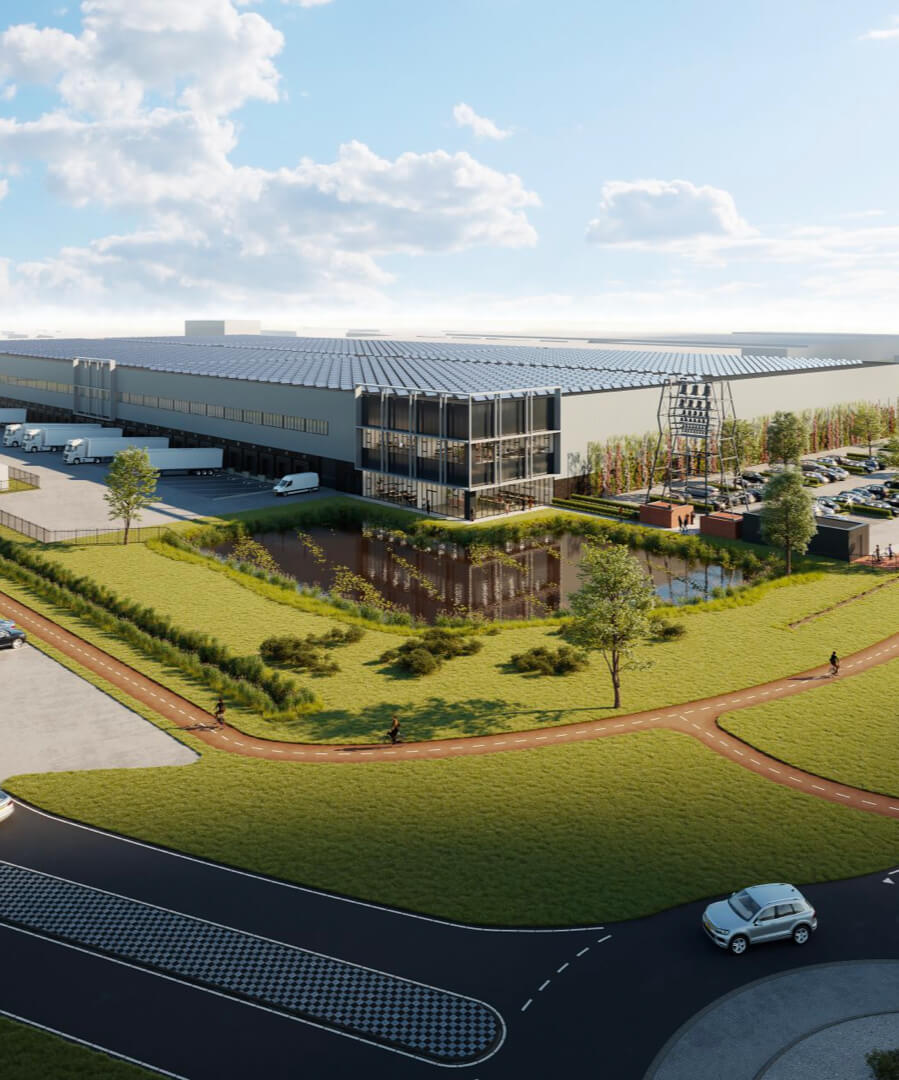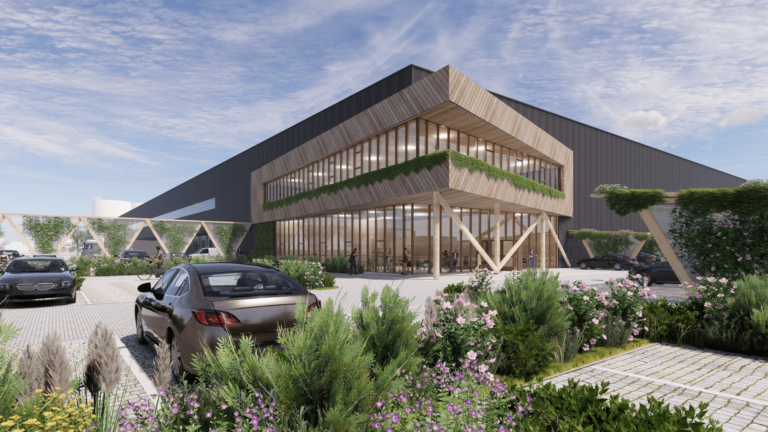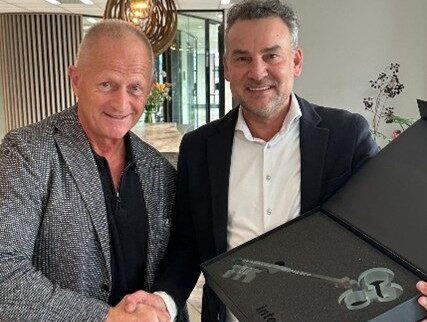We use cookies and similar technologies to make our website easier and more personal. You can always choose which types of cookies you want to allow. Read more about this in our cookie statement.
Completion of first self-sufficient distribution centre at Schiphol
28 April, 2022
Hoofddorp, 28 April 2022 – Logistic real estate developer Intospace has completed a new distribution centre (DC) at Schiphol Trade Park in Hoofddorp that is the first in the Netherlands to be able to provide for its own energy needs. The DC is designed to operate off-grid and is therefore independent of the public electricity grid. The building can generate its own energy and the power that is not used in the building is fed back into the public grid. This is one of the reasons why the building has been awarded the highest possible energy label of A+++++. This daring feat of electricity generation, storage and exchange was made possible by the collaboration with energy infrastructure specialist Joulz.
The distribution centre comprises 55,000 square metres of storage space, 6,500 square metres of mezzanine floor and 5,300 square metres of office space. The building also has 64 docks for trucks and delivery vans and four ground-level doors for trucks. In addition to the highest possible energy label, the building also has the highest BREEAM sustainability certificate of the ‘outstanding’ level. “With this development, we at Intospace are showing that the problem of congestion of the public electricity grid does not have to mean that new construction projects cannot be realised,” said Intospace CEO Tim Beckmann. “By working with Joulz to design and develop a building with little or no dependence on the public grid, we have delivered an extremely future-proof building.”
Energy collective
In total, the new distribution centre has over 20,000 solar panels. Enough for an annual production of about 7.6 gigawatt hours, the equivalent of the consumption of about 3,000 average households. Part of that power will be stored in the two container batteries that comprise the building. The electricity supply is expected to be delivered by Joulz in June.
The building will receive its electricity from its own generation and is also connected to the recently established Schiphol Trade Park Energy Collective. Within this collective, companies at Schiphol Trade Park share their unused power capacity with each other via a virtual layer, a form of collaboration that is unique in Europe. At Schiphol Trade Park, not all 15 companies wishing to set up shop were able to purchase electricity due to the grid congestion issue. The four companies that were the first to obtain a building permit could still apply for a connection from grid manager Liander. In the energy collective, fifteen companies will share the available grid capacity. Thanks to a combination of own energy generation and power exchange, they only need four connections. The combination of own generation capacity and the mutual cooperation ensures the security of supply in the field of electricity.
Example for the future
The new distribution centre is always assured of electricity through multiple layers of security of supply. The building can operate completely off-grid and a smart energy management system ensures that the smartest choice is always made as to where the power comes from (solar roof, battery, collective or generators) and what the power is used for.
“This project is still unique in the Netherlands. It is a good combination of proven technology, with new innovative solutions and intensive cooperation”, says Joulz director Jan Verheij. “The solutions devised here are an example for the future, in which the focus is on optimising the energy balance, i.e. use and production. And without the user noticing a thing. This is possible for every project or location, individually, but certainly also in cooperation with the environment. And that is exactly what we were able to develop here for the first time together with Intospace.”




